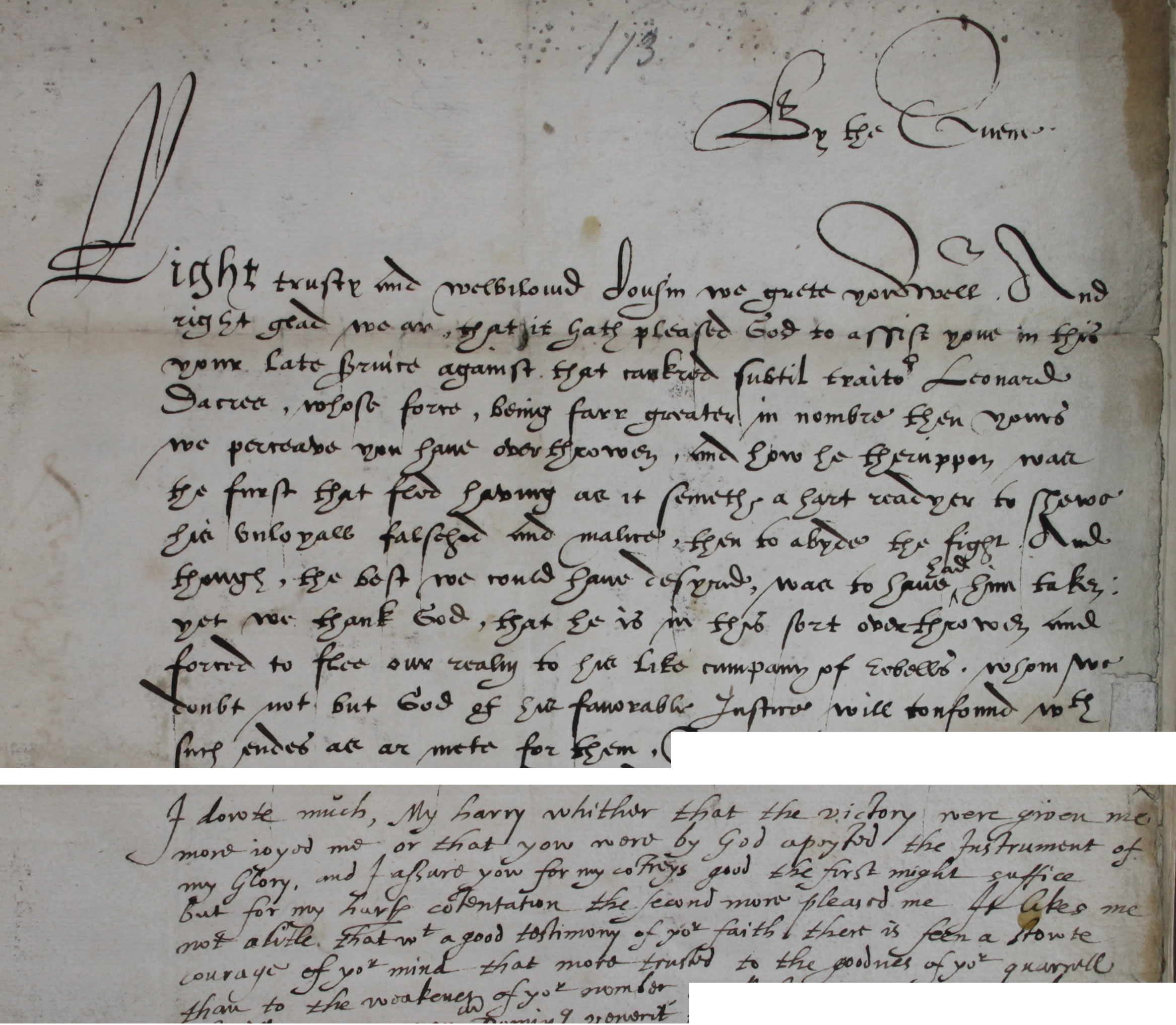
Elizabeth I to Henry Carey, Lord Hunsdon, 26 February 1570 (SP 15/17 f.263)
As a prisoner on English soil, Mary Queen of Scots was even more of a threat to Elizabeth than she had been in Scotland. Now she was tantalisingly within reach for all of the powerful Catholic nobles who wanted to oust the ‘heretical’ Elizabeth from the throne and replace her with her Scottish cousin. One of the first rebellions against Elizabeth’s regime was the Rising of the North in November 1569, led by the Earls of Northumberland and Westmorland. Although it was quickly suppressed, the investigation proved that the tendrils of revolt had spread wider than had first appeared. Another prominent nobleman, Leonard Dacre, had been deeply involved, and when Lord Hunsdon was sent to arrest him, Dacre and his followers engaged him in battle. They were defeated, and Dacre fled to Scotland. In this letter, Elizabeth thanks Hunsdon, who was her first cousin, being the son of Mary Boleyn. It was written the day after Pope Pius V issued a bull of excommunication against Elizabeth, which effectively sanctioned her assassination by those subjects who stayed loyal to the Roman Catholic faith.
Transcript (extract)
[Draft by Lord Burghley] Right trusty and welbeloved cousin we grete you well. And right glad we ar, that it hath pleased God to assist youe in your late service against that cankred subtil traitor Leonard Dacres, whose force, being farr greater in nombre then yours we perceave you have overthrowen, and how he thereuppon was ye first that fled having as it semeth a hart readyer to shewe his unloyall falshood and malice, then to abyde the fight. And though, the best we cold have desyred, was to have had hym taken: yet we thank God that he is in this sort overthrowen and forced to flee oure realme, to his lyke company of rebells, whom we doubt not but God of his favourable Justyce will confounnd with such endes as ar mete for them…
[Added by Elizabeth in her own hand] I dowte much, my Harry whither that the victory were given me more ioyed [joyed] me, or that yow were by God appoynted the Instrument of my Glory, and I assure yow for my countreys good the first might suffice but for my hartes contentation, the second more pleased me. It likes me not a litle that, with a good testimony of your faith, there is seen a stowte courage of your mind, that more trusted to the goodness of your quarrell than to the weakness of your nomber…
